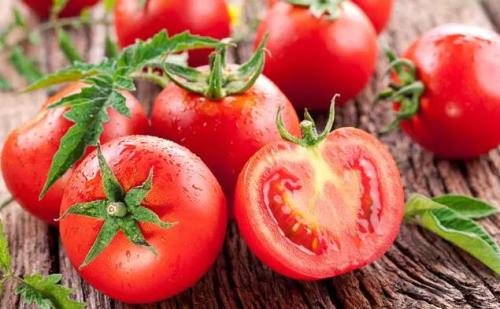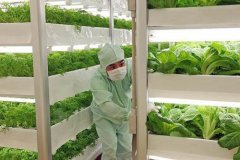How to wash fruit? How to clean the pesticide residues in fruits and vegetables?
How to wash fruits and vegetables to eat with peace of mind: in order to eliminate pesticide residues on the surface of fruits and vegetables, consumers usually have to deal with them before eating. the following methods, such as cleaning, peeling, storage and cooking, can remove pesticide residues and make people eat with peace of mind. Let's take a look.

1. Rinsing with flowing water: it is best to wash fruits and vegetables with flowing water. With the ability to wash and dilute the water, the pesticide residues on the surface of fruits and vegetables should be removed. The use of detergent, salt water or soaking in clean water for a long time is ineffective for the removal of pesticide residues.
In the case of melons and fruits, such as cucumbers, tomatoes, carambola, balsam pear, green peppers and other peeled fruits and vegetables, you can use a soft brush to wash with flowing water. In addition, cabbage, cabbage and other leafy vegetables can discard the outer leaves, while the internal leaves can be washed piece by piece. As for leafy vegetables such as Qingjiangcai, spinach, pakchoi and other vegetables, the base of petioles and the upward depressions of green peppers and fruits are prone to pesticide residues, which should be carefully rinsed or partially removed.
two。 Heating cooking: vegetables in the cooking process, can eliminate pesticide residues in vegetables. Most pesticides are decomposed after being heated and cooked. It can also go through the heating process and disappear with the evaporation of water vapor, so do not cover it when cooking or cooking soup.
3. Cleaning and peeling: the peeling procedure can remove pesticides that remain on the surface of fruits and vegetables. Vegetables such as cucumbers, carrots, wax gourds, pumpkins and fruits such as litchi, longan, grapes, oranges, mangoes, bananas and papayas are best washed with water and then peeled to avoid pesticide contamination on the fruit surface.
4. Storage and storage method: do not immediately eat freshly picked unpeeled melons and fruits, because pesticides in the air can slowly decompose into substances that are harmless to the human body. Therefore, some vegetables that are easy to be preserved can be stored for a certain period of time to reduce pesticide residues. It is suitable for non-perishable varieties such as wax gourd and pumpkin. Generally, it should be stored for more than 10 to 15 days.
- Prev

How to clean pesticide residues? how to clean vegetables pesticide residues? Cleaning of pesticide residues in fruits and vegetables
Nowadays, vegetables and fruits are sprayed with pesticides, and the pesticide residues are also very serious, so how can we clean them in order to make the less pesticide residues? Excessive nitrogen fertilizer for fruits and vegetables. Watch out for cancer. Eating fruits and vegetables is good for health, but excessive use of nitrogen fertilizer exists in
- Next

Do organic vegetables use pesticides? Do organic vegetables use pesticides to kill insects?
Is it really good to spray pesticides on organic vegetables? How can consumers be deceived like this? Because of this, some people have been hurt. Let's take a look. December 1987 Consumer report magazine published "Organic vegetables still spray Pesticide."
Related
- A one-day flower show brings 130 million yuan in orders! Nanhai, this Phalaenopsis exhibition is amazing
- What do the flower language and meaning of Lutheran tree mean? Precautions for planting Lutheran tree
- Encounter Chaoshan Kongfu tea, not without this cup of Phoenix single clump
- The durian market in Vietnam and Thailand is flooded. The price of imported durian has plummeted by 30-40% in a month.
- Shanghai solved the problem of local vegetable supply by planting 80,000 mu of green leafy vegetables.
- Wageningen University has become the best agricultural university in the world for the seventh time in a row.
- The strongest export season of South African grapes is full of challenges, with exports to Russia falling sharply by 21%.
- Sri Lanka is on the verge of bankruptcy, "Tea for debt" Organic Agriculture Revolution aggravates the Food crisis?
- Turning waste into earthworm manure and worm manure into organic fertilizer-A new choice for auxiliary farming
- Organic rice growers shoulder the responsibility of nurturing agricultural talents! Yinchuan Sustainable Farm with Organic Life Camp

